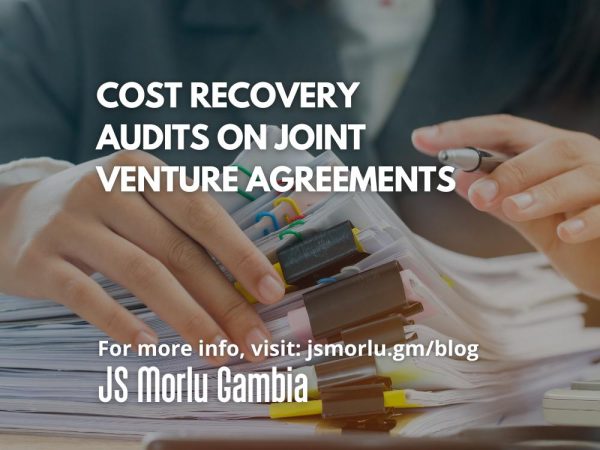A cost recovery audit is a review of financial transactions and related data and operations to identify and recover various forms of erroneous payments, over deductions, and under deductions. In the context of joint venture agreements, a cost recovery audit can be a valuable tool for ensuring that all parties are paying their fair share of costs and that no one is being overcharged.
There are a number of benefits to conducting a cost recovery audit on a joint venture agreement. These benefits include:
- Increased transparency and accountability: A cost recovery audit can help to increase transparency and accountability within a joint venture. By reviewing all financial transactions, an auditor can identify any areas where costs may have been inappropriately charged or where there is a lack of documentation. This information can then be used to improve the joint venture’s financial reporting and to ensure that all parties are held accountable for their costs.
- Potential for cost savings: A cost recovery audit can also identify potential for cost savings. By identifying areas where costs have been inappropriately charged, a joint venture can take steps to correct the problem and avoid paying for unnecessary expenses in the future.
- Reduced risk of disputes: A cost recovery audit can help to reduce the risk of disputes between the parties to a joint venture. By identifying and resolving any potential issues before they become major problems, a cost recovery audit can help to keep the joint venture running smoothly.
How to Conduct a Cost Recovery Audit
The specific steps involved in conducting a cost recovery audit will vary depending on the specific terms of the joint venture agreement. However, there are some general steps that are typically followed.
- Review the joint venture agreement: The first step is to review the joint venture agreement to understand the specific terms and conditions governing cost recovery. This includes understanding the types of costs that are recoverable, the procedures for submitting cost recovery claims, and the deadlines for submitting claims.
- Gather documentation: The next step is to gather all relevant documentation related to the joint venture’s finances. This includes invoices, receipts, contracts, and other financial records.
- Analyze the data: Once the documentation has been gathered, the auditor will analyze the data to identify any potential issues. This includes looking for duplicate charges, incorrect pricing, and unsupported expenses.
- Communicate the findings: Once the auditor has completed the analysis, they will communicate the findings to the parties to the joint venture. This includes providing a detailed report of the findings and recommendations for resolving any issues.
Conclusion
A cost recovery audit can be a valuable tool for ensuring that all parties to a joint venture are paying their fair share of costs and that no one is being overcharged. By following the steps outlined above, a joint venture can conduct a cost recovery audit that is both effective and efficient.
In addition to the benefits mentioned above, a cost recovery audit can also help to:
- Improve the joint venture’s financial reporting
- Enhance the joint venture’s overall governance
- Build trust and confidence between the parties to the joint venture
